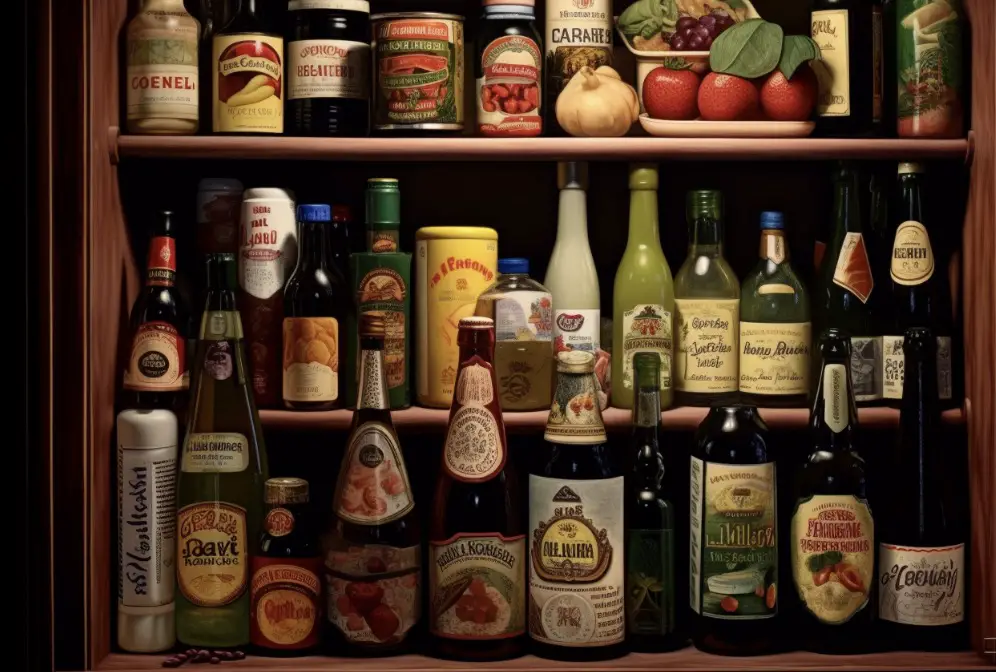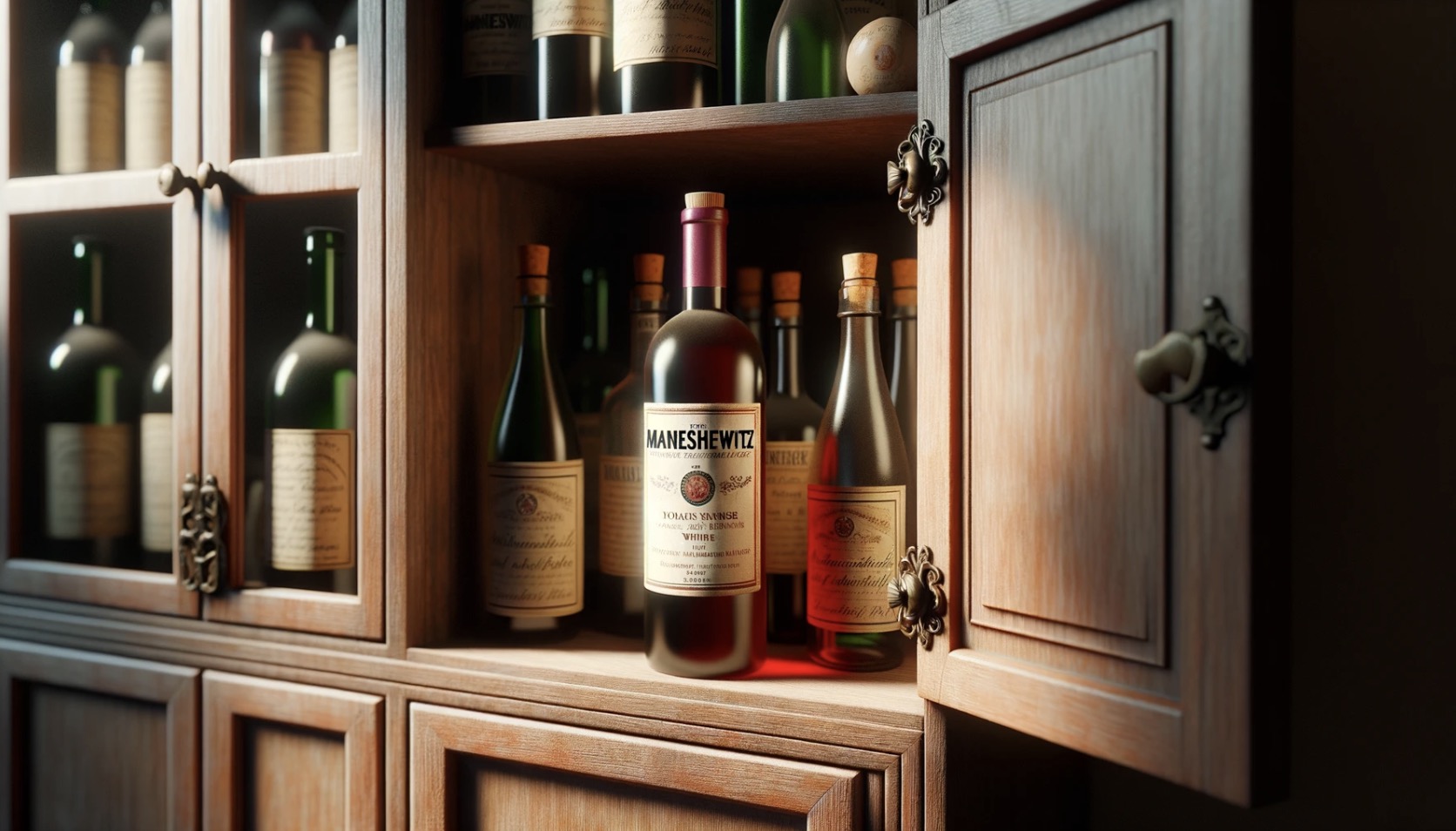Does Manischewitz wine need to be refrigerated? This is a question I’ve been asked numerous times by friends, family, and fellow wine enthusiasts.
As an experienced brewer and lover of all things wine, I want to share my knowledge and experiences regarding the storage and handling of Manischewitz wine.
In this blog post, we’ll explore the history of Manischewitz wine, its unique characteristics, proper storage techniques, and much more.
The History of Manischewitz Wine
Manischewitz wine has a rich and fascinating history that dates back to the late 19th century. Founded by Rabbi Dov Behr Manischewitz in 1888, the company initially specialized in producing kosher food products.
However, it wasn’t until the early 20th century that Manischewitz started producing kosher wines, which quickly became popular among the Jewish community in the United States.
The Significance of Kosher Wine
Kosher wines are produced following strict Jewish dietary laws, known as kashrut. These laws dictate the entire winemaking process, from grape-harvesting to bottling. In addition, all kosher wines must be made and handled by observant Jews.
While the primary market for Manischewitz wine remains within the Jewish community, its unique flavor profile and storied history have gained it fans among wine enthusiasts worldwide.
Unique Characteristics of Manischewitz Wine
Manischewitz wine is known for its distinctive flavor and sweetness. Made from Concord grapes, this wine has a bold, fruity taste and a rich, dark color. Often served during Jewish holidays and celebrations, Manischewitz wine has become synonymous with tradition and heritage.
Sweetness and Acidity
One of the key characteristics of Manischewitz wine is its high sugar content. This sweetness is balanced by a noticeable acidity, which provides a pleasant contrast and prevents the wine from becoming cloying. The combination of sweetness and acidity make Manischewitz wine an ideal choice for pairing with a variety of foods, particularly those with robust flavors and spices.
Proper Storage of Manischewitz Wine
Like any other wine, Manischewitz wine should be stored properly to maintain its quality and flavor. While refrigeration is not required for storing unopened bottles, it is recommended for preserving the quality of opened bottles.

Ideal Temperature and Humidity
The ideal temperature for storing Manischewitz wine is between 50 and 60°F (10 and 15°C). This temperature range helps preserve the wine’s flavor and prevents it from deteriorating prematurely.
In addition, maintaining a humidity level of around 70% can help prevent the cork from drying out and allowing air to enter the bottle.
Storing Opened Bottles
Once a bottle of Manischewitz wine has been opened, it should be refrigerated to maintain its freshness and flavor. Opened bottles should be consumed within a week, as the wine will start to lose its quality and taste over time. To further extend the shelf life of an opened bottle, consider using a vacuum pump to remove excess air and resealing the bottle with a tight-fitting stopper.
Serving Manischewitz Wine
Manischewitz wine is best enjoyed at a slightly chilled temperature, around 55°F (13°C). This allows the wine’s flavors and aromas to be fully appreciated. To achieve this temperature, simply remove the wine from the refrigerator about 30 minutes before serving.
Glassware
When serving Manischewitz wine, it’s important to use the appropriate glassware. A small, tulip-shaped wine glass is ideal, as it helps to concentrate the wine’s aromas and enhances the overall tasting experience.
Pairing Manischewitz Wine with Food
Given its sweetness and acidity, Manischewitz wine pairs well with a variety of dishes. Some popular food pairings include:
- Charcuterie and cheese boards
- Spicy dishes, such as Indian or Thai cuisine
- Rich, flavorful meats like brisket or roast lamb
- Desserts, particularly those featuring fruit or chocolate
Conclusion
In conclusion, while Manischewitz wine does not need to be refrigerated before opening, it is recommended for preserving the quality of opened bottles. Proper storage and serving techniques will ensure that this unique and delicious wine can be enjoyed to its fullest. Here are ten key facts about Manischewitz wine:
1. Founded in 1888 by Rabbi Dov Behr Manischewitz
2. Made following strict kosher dietary laws
3. Produced from Concord grapes
4. Known for its distinctive sweetness and acidity
5. Ideal storage temperature is between 50 and 60°F (10 and 15°C)
6. Opened bottles should be refrigerated and consumed within a week
7. Best served at a slightly chilled temperature of 55°F (13°C)
8. Recommended glassware is a small, tulip-shaped wine glass
9. Pairs well with a variety of foods, from spicy dishes to rich meats and desserts
10. A symbol of tradition and heritage within the Jewish community
FAQs
Does Concord grape wine need to be refrigerated?
Concord grape wine does not necessarily need to be refrigerated, but it is recommended to store it in a cool and dark place. Like most wines, exposure to heat, light, and fluctuations in temperature can negatively impact its quality.
Refrigeration can help to maintain a consistent temperature, which is particularly important for preserving the flavors and aromas of the wine. However, if you plan to consume the Concord grape wine within a few weeks or months, storing it in a cool place away from direct sunlight should be sufficient. It’s worth noting that refrigeration can affect the texture of the wine, making it slightly thicker or cloudier, but this does not necessarily indicate spoilage.
Does unopened Manischewitz wine go bad?
Unopened Manischewitz wine does not go bad in the sense that it becomes unsafe to consume. However, like any other wine, it can experience changes in flavor, aroma, and quality over time. Manischewitz wine is a kosher wine made from Concord grapes, and it is known for its sweet and fruity taste.
While unopened Manischewitz wine can be stored for an extended period, it is important to note that the quality may deteriorate over time. Factors such as temperature, humidity, and exposure to light can impact the wine’s taste and aroma. Over an extended period, the wine may lose some of its fruity flavors and develop a more oxidized or “cooked” taste.
To ensure the best quality, it is recommended to store unopened Manischewitz wine in a cool, dark place, away from direct sunlight and extreme temperature fluctuations. Proper storage conditions can help preserve the wine’s flavors and delay any potential degradation. It is also advisable to consume the wine within a few years of purchase for the best taste experience.
Should you refrigerate Concord wine?
Concord wine should be refrigerated after opening to maintain its freshness and prevent spoilage. Refrigeration helps to slow down the oxidation process, which can negatively impact the flavor and quality of the wine. Additionally, refrigerating Concord wine can help preserve its vibrant fruity flavors and aromas. It is recommended to store opened Concord wine in the refrigerator and consume it within a few days for optimal taste.
Should you refrigerate Manischewitz wine after opening?
No, it is not necessary to refrigerate Manischewitz wine after opening. Manischewitz is a sweet kosher wine made from Concord grapes and is typically enjoyed at room temperature or slightly chilled. Refrigerating the wine may actually dull its flavors and aromas.
However, if you prefer your wine slightly chilled, you can refrigerate it for a short period before serving. It is important to note that once opened, the wine should be recorked tightly and stored in a cool, dark place to maintain its quality for a few days to a week.
Does grape wine need to be refrigerated?
Grape wine does not necessarily need to be refrigerated, but it depends on the type of wine and personal preference.
For most red wines, refrigeration is not required and can even dull the flavors and aromas. Red wines are typically served at room temperature, which allows the flavors to fully develop. However, if you prefer your red wine slightly chilled, you can refrigerate it for about 15-30 minutes before serving.
White wines, on the other hand, are generally served chilled. Refrigeration helps to preserve their delicate flavors and aromas. Before serving, it is recommended to refrigerate white wines for at least 2-3 hours, or you can keep them in the fridge for longer periods.
Sparkling wines, such as Champagne or Prosecco, should be chilled before opening. Refrigerating them for a few hours or keeping them in a wine cooler will help maintain their effervescence and crispness.
It’s important to note that once a bottle of wine is opened, it should be stored in the refrigerator to slow down the oxidation process. This helps to preserve the wine’s quality and prevent it from spoiling. However, if you plan to consume the wine within a day or two, simply re-corking it and storing it in a cool, dark place should suffice.
Ultimately, the decision to refrigerate wine depends on personal preference. It is always a good idea to follow the specific recommendations provided by the winemaker or consult with a sommelier for optimal serving temperatures.
Can opened wine be left unrefrigerated?
Yes, opened wine can be left unrefrigerated for a short period of time, typically up to 3-5 days. However, the exact time depends on various factors such as the type of wine, storage conditions, and personal preferences. Generally, red wines can withstand being left unrefrigerated for a longer time compared to white or rosé wines.
When a bottle of wine is opened, it is exposed to oxygen, which starts the oxidation process. Oxidation can alter the flavors and aromas of the wine, making it less enjoyable over time. Refrigerating the opened wine slows down the oxidation process, helping to preserve its quality for a longer period.
To extend the shelf life of opened wine, it is recommended to reseal it tightly with a cork or a wine stopper and store it in a cool, dark place away from direct sunlight and heat sources. If you plan to consume the wine within a few days, leaving it at room temperature is generally acceptable. However, if you want to keep it for a longer time or prevent the wine from spoiling, refrigeration is advisable.




